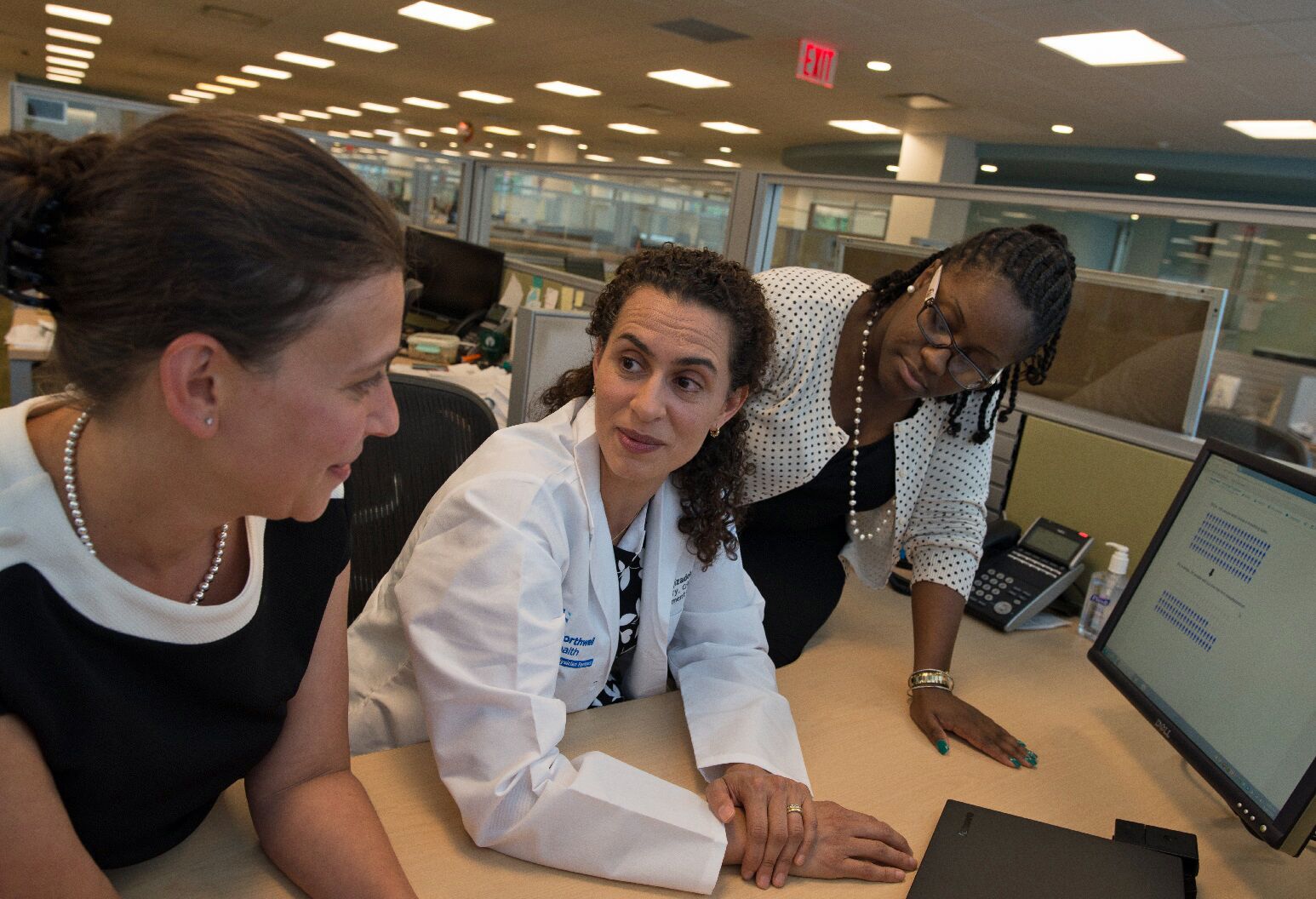Our representatives are available to schedule your appointment Monday through Friday from 9am to 5pm.
For a Northwell ambulance, call
(833) 259-2367.

Some immune systems have responded to coronavirus disease 2019 (COVID-19) infections by going into overdrive, resulting in an overzealous inflammatory response referred to as a cytokine storm.
In a retrospective study of nearly 6,000 patients, researchers from the Feinstein Institutes for Medical Research and Northwell COVID-19 Research Consortium have identified the most effective immunomodulatory therapies to treat patients with evidence of this cytokine storm and improve patient survival.
A multidisciplinary team of investigators, led by Negin Hajizadeh, MD, a pulmonary and critical care physician, and associate professor at the Feinstein Institutes, analyzed the electronic health records of hospitalized COVID-19 patients across 12 of Northwell Health hospitals — New York State’s largest health system — between March 1 and April 24, 2020. The results were published today in CHEST, by Sonali Narain, MD, assistant professor at the Feinstein Institutes, corresponding author, and team.
Patients were divided into one of six groups; no immunomodulatory treatment (standard of care), patients who received intravenous corticosteroids, anti-interleukin 6 antibody therapy (tocilizumab) or anti-interleukin-1 therapy (anakinra) alone or in combination with corticosteroids.
The results show that the most effective treatment was the combination of corticosteroids — such as dexamethasone — with tocilizumab when compared to standard of care. Additionally, there was an improvement if corticosteroids were used alone, or in combination with tocilizumab or anakinra when compared with standard of care.
“Cytokine storms are a hallmark for many COVID-19 patients and are associated with the most severe form of this illness,” said Dr. Hajizadeh, associate professor at the Zucker School of Medicine at Hofstra/Northwell and co-senior author on the paper. “Our findings suggest that with the intervention of certain drugs like corticosteroids, we can battle the cytokine storm and improve outcomes to the point that we believe we have found a new standard of care for seriously ill patients.”
Overall, there were twice as many males as females in the cohorts, and more than 65 percent had never smoked. Contradictory to previous reports, the Black population was associated with better survival compared to white patients. Additionally, the most common comorbidities across the groups of patients that experienced a cytokine storm include:
“Dr. Hajizadeh’s major COVID-19 research study gives timely and crucial new knowledge about using currently available anti-inflammatory drugs,” said Kevin J. Tracey, MD, president and CEO of the Feinstein Institutes. “This information will help others save lives.”
The researchers hope that the findings are useful for frontline providers to care for severely ill COVID-19 patients and to aid in the future design of large randomized controlled clinical trials, the gold standard of medical research.
Throughout the pandemic, The Feinstein Institutes and the Northwell COVID-19 Research Consortium (CRC) have been a global leader in publishing some of the most highly-cited COVID-19 research studies. Specifically, the Northwell Health CRC has organized more than 500 clinicians, statisticians and scientists to produce papers in leading academic journals.
Some notable studies include the first large-scale report, published in the Journal of the American Medical Association (JAMA), which linked comorbidities to acuity in hospitalized COVID-19 patients, and the results of antibody prevalence in frontline workers, which also published in JAMA.
From behavioral health, to nephrology and molecular medicine, researchers from every discipline continue to work tirelessly to unravel the mysteries of COVID-19 to better understand the basic science of the virus and most effective treatments.
Our representatives are available to schedule your appointment Monday through Friday from 9am to 5pm.
For a Northwell ambulance, call
(833) 259-2367.